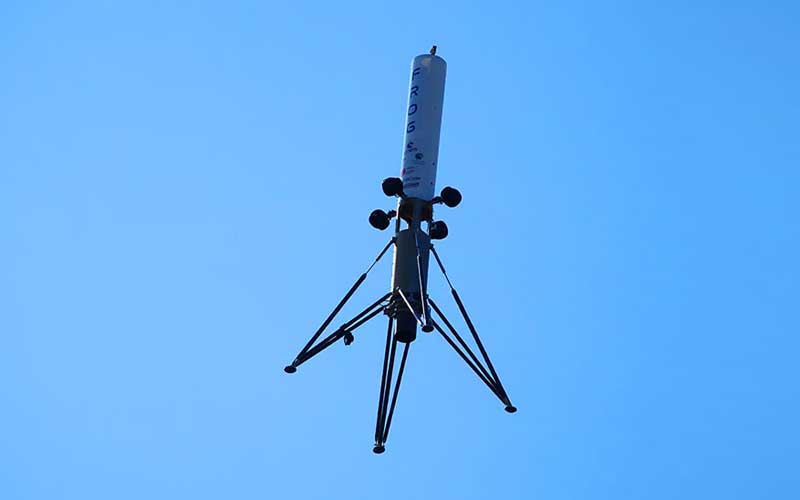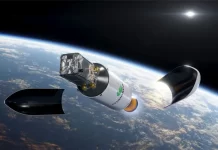
The French space agency CNES will begin flight testing a small reusable rocket demonstrator called FROG-H in 2025.
In 2017, CNES launched its Rocket for GNC demonstration (FROG) project, aiming to test landing algorithms for reusable launch vehicles. The agency also utilized the project to pursue a “break from traditional development methods.” According to CNES, the FROG project allowed “several teams of enthusiasts” to develop and test their solutions in parallel, allowing for an agile development approach.
The FROG project’s first test vehicle was the 2.5-metre FROG-T demonstrator, which was powered by a turbojet. The first test flight of the FROG-T demonstrator occurred in May 2019. In total, CNES completed five FROG-T flights, with the vehicle reaching a maximum altitude of 30 metres.
In December 2022, CNES completed a detailed definition for FROG-H, an upgraded demonstrator that would be 3.6 metres tall. The demonstrator will be powered by a monopropellant rocket engine being developed by the Łukasiewicz Institute of Aviation in Poland, under a European Space Agency contract. The primary aim of the FROG-H upgrade is to allow the project to test under conditions that are more representative of a reusable rocket booster “from a propulsion point of view.”
The inaugural flight of FROG-H is expected to take place in early 2025. CNES is also aiming to complete an initial test flight of the Callisto reusable rocket demonstrator in 2025. Callisto is a joint effort between CNES, DLR, and JAXA. The objective of the project is for the vehicle to reach an altitude of 20 kilometres and safely return to land back at the launch site. The 13-metre-tall reusable rocket demonstrator will be launched from the Guiana Space Center.




